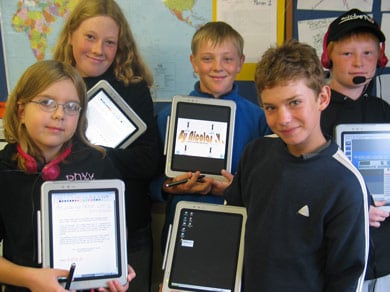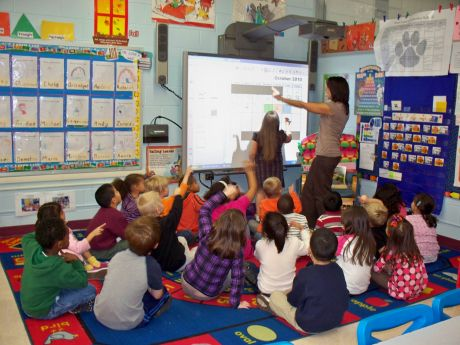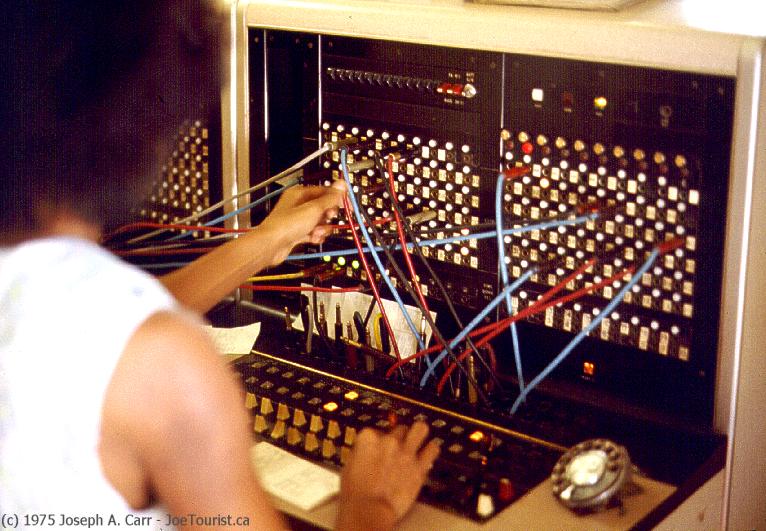I actually watched all of the suggested videos for this week
and I could probably find enough to fill dozens of blog posts to say about the
videos, but for now, I will just mention a couple of points that stood out to
me.
While the videos were definitely thought-provoking, I think
it’s important not to take everything they say at face value. There’s more to the story of education and
technology. Although many of the videos
brought up some interesting points and overlapped in some ways, I did not agree
with everything the videos had to say.
First of all, it must be said that they were definitely
written for an audience that has access to all of these technologies and seem
to take for granted that everyone does.
This is not true even in this country and is certainly not true if you
consider the whole world.
The point was
made that schools are not embracing technology, but in reality there are many
students whose only exposure to much modern technology beyond television is at
school. Even the statistic about how if
Facebook were a country it would be the third largest one is a bit misleading
given that there are many people who have multiple accounts for various
reasons. Although I do agree that the
use of technology has exploded exponentially over the past few decades, I think
it is important to note that the videos are not necessarily presenting the
complete reality. Maybe over the course
of the next few decades technology really will be available to everyone but
right now it must be said that when reflecting on this we are taking mainly
about middle class people living in developed countries.
One of the problems when people discuss education is that many
people talk about schools the way they perceive them to be (or even how they perceived
them to be when they were students) without actually knowing what goes on in
them (and going in for an hour or for a day does not give you the full picture. You have to spend an extended time to really
understand). For example, Educational ChangeChallenge talks about “twenty five students and one adult in a room for 6 hours
a day”. I don’t think this happens at
most schools. Every school I have been in recently has students moving around
the school all day. Many elementary schools have grade level teams and teachers
create schedules for students based around the needs of the
students. Some students may even spend parts of the day in other grade level
classes.
Also, there are many other adults in school providing services….teacher
aides, speech pathologists, physical and
occupational therapists, psychologists, media specialists, just to name a few.
The video also makes the claim that schools assume that “every six year old will be in the same place”. I think schools and teachers do realize that not every student will be at the same place on the same day and do as much as possible to help students achieve their potential. In teacher education programs getting to know each student and his or her individual needs and knowing how to differentiate is highly stressed. I think teachers wish there could be more people, levels, and services, but our society is not putting the money toward education that would be required in order to provide these things. Another problem is that this is not how society/the government evaluates the system/ teachers that is the problem. Relying on standardized testing is evaluating students as if every student should be at the same place at the same time. I don’t hear teachers say they believe this is the best way, but their hands are tied to some extent. This is also one reason that basing teacher evaluations primarily on standardized test scores is not a good way to evaluate teachers.
The video also makes the claim that schools assume that “every six year old will be in the same place”. I think schools and teachers do realize that not every student will be at the same place on the same day and do as much as possible to help students achieve their potential. In teacher education programs getting to know each student and his or her individual needs and knowing how to differentiate is highly stressed. I think teachers wish there could be more people, levels, and services, but our society is not putting the money toward education that would be required in order to provide these things. Another problem is that this is not how society/the government evaluates the system/ teachers that is the problem. Relying on standardized testing is evaluating students as if every student should be at the same place at the same time. I don’t hear teachers say they believe this is the best way, but their hands are tied to some extent. This is also one reason that basing teacher evaluations primarily on standardized test scores is not a good way to evaluate teachers.
Several of the videos brought up the fact that we are
preparing students for a world that doesn’t exist yet. I
think that since the history of the world, we have always been doing that. That’s pretty much the definition of time and
the way time has always been and teachers and schools are aware of this and do
the best they can. The 21stCentury Education in New Brunswick, Canada video says that the top ten jobs
today didn’t exist in 2004. After hearing this, I did a search for the top jobs in 2011 and 2012
and looked at about 25 different websites.
All of them contained mostly jobs that have been around for
decades. Only a couple of jobs listed, like social media director,
were ones that might not have existed ten years ago, so I don’t know where these
statistics came from, since it is not cited in the video. They also say that “at
today’s rate of change technology will experience 20,000 years of growth this
century”. This to me sounds like advertising
claims such as “40% more fun” or “30% cleaner dishes”. What exactly is being measured and how are they
measuring this? I think
that schools do try to keep up with technology in many ways. Many middle class schools are now equipped with
smartboards and other technologies that teachers use every day and many
teachers would be willing to use more if they were available.
Also, don’t forget that teachers live in the
same world as the students and are aware of technology. I bet most teachers in developed countries have
cell phones and internet and use Facebook and other technologies to varying
degrees just like the students. Many
people in my family are teachers and I have actually found that other than
people whose careers are technology-based (such as computer programmers), teachers
actually tend to be more technologically literate than other people their own
age.
One point made in many of the videos was the fact that
information is much more readily available to the average person than ever
before. I agree with this and think that
this changes something fundamental about education in that memorizing facts isn’t
as important. Teaching students how to
use the information is what is important.
I think the Networked Student video gave a great example of how to
approach learning in a different way to empower students in this way through
technology. On the other hand, the PayAttention video for example, brought up using texting as a resource and while I’m
sure there are ways it could be useful, I don’t really think that the example
in the video showed this. Maybe I’m missing something, but I really
don’t see it as very important or interesting to find out what a bunch of
random people had for breakfast, what the weather is like where they are and what
they purchased to be all that important.
You can look up what the weather is like all over the world online and yes,
you can use the information gathered this way to practice graphing, but I think
it would be better to use information more relevant to students’ lives for this
purpose and to create graphs that would be of use. This, for me was an example of
using technology for its own sake like I mentioned in my previous post rather
than reflecting on whether it would actually enhance the learning experience.
Also, none of these videos point out that there are certain
things we are less good at because of technology. There are things that students could do in
the past and learned about in school that most people can’t do today and would
be actually helpless without technology…making our own clothes, processing
wheat into flour, even driving one of the first cars made or operating
a telephone switchboard would be too complicated for most people. There are many people I know who don’t even know
how to do dishes by hand! I don’t see
schools teaching about any of these things (and they shouldn’t).
In the end, for most learners a good teacher who uses good
pedagogy (which would mean including technology where and when it is
appropriate) is the best choice.
9/ 17: Edited to add links to all of the videos watched :
EducationalChange Challenge (2:26)
21st Century Education in NewBrunswick, Canada (5:35)
RSAAnimate-Changing Education Paradigms (11:41)
Social Media Revolution 2011 (2:35)
DidYou Know? Version 6 (4:22)
A Vision of K-12 Students Today (4:45)
Pay Attention (7:42)
The Networked Student by Wendy Drexler (5:10)
21st Century Education in NewBrunswick, Canada (5:35)
RSAAnimate-Changing Education Paradigms (11:41)
Social Media Revolution 2011 (2:35)
DidYou Know? Version 6 (4:22)
A Vision of K-12 Students Today (4:45)
Pay Attention (7:42)
The Networked Student by Wendy Drexler (5:10)








